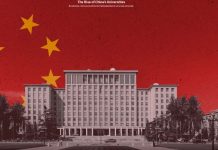
By: Muhammad Zeb
Humanity, an eternal wanderer, has ceaselessly sought the unknown. From the boundless expanse of the cosmos to the abyssal depths of the ocean, we have relentlessly pursued every conceivable frontier. Yet, a question of profound enigma has perpetually captivated the human intellect: Can we traverse the river of time? Can we, like ghosts of the future, return to a bygone era and alter the tapestry of history? Or can we, with a prophetic vision, glimpse the nascent contours of tomorrow and prepare ourselves for the unfolding of destiny?
Einstein’s revolutionary theory of relativity shattered our conventional notions of time, revealing its fluid, relative nature. He elegantly demonstrated that time, far from being an immutable constant, is intricately interwoven with motion and gravity. A spacecraft hurtling through the cosmos at near-light speeds, he postulated, would experience a deceleration of time’s relentless march. This profound insight, once a theoretical marvel, has since been substantiated by rigorous empirical evidence.
Wormholes: A Gateway to the Unseen
A captivating hypothesis suggests that “wormholes,” ethereal tunnels bridging disparate points within the fabric of spacetime, could serve as conduits for temporal journeys. These hypothetical passages, akin to secret doorways concealed within the cosmos, could potentially shorten the immense distances that separate us in the vast expanse of the universe. If we were to somehow unlock the secrets of these celestial shortcuts and navigate their enigmatic pathways, perhaps, just perhaps, we could also traverse the elusive currents of time itself. However, this remains a tantalizing theoretical construct, its realization still a distant dream, a formidable challenge awaiting the ingenuity of future generations.
The Paradoxical Pitfalls of Temporal Travel: A Labyrinth of Intricacies
The prospect of temporal travel, however, is not without its profound and perplexing implications. The “grandfather paradox,” a classic thought experiment, serves as a stark reminder of the intricate and potentially paradoxical nature of such journeys. Imagine, if you will, journeying back to the dawn of your own existence and tragically extinguishing the life of your ancestor, the very progenitor of your being. A logical contradiction arises: if your grandfather ceases to exist, your own existence becomes impossible, thereby rendering your act of regicide an impossibility. This perplexing paradox has ignited a fervent debate, fueling countless philosophical and scientific inquiries into the very nature of time and causality.
Time Travel: A Philosophical Odyssey
Time travel transcends the realm of mere scientific inquiry, delving into the profound depths of philosophical contemplation. If we were indeed granted the power to traverse the corridors of the past, would we possess the wisdom to alter the course of history? Could we rectify past mistakes, mend broken hearts, and rewrite the narratives of our lives? These are questions that demand profound introspection and challenge our deepest understanding of existence, free will, and the very essence of our being.
A Glimpse of Hope in the Horizon
While the prospect of time travel may currently reside within the realm of science fiction, the relentless march of scientific progress offers a glimmer of hope. The relentless pursuit of knowledge, the relentless probing of the universe’s deepest secrets, may one day yield the technological marvels necessary to unlock the mysteries of temporal travel. Perhaps, one day, humanity will finally transcend the limitations of its temporal existence, embarking on a grand odyssey through the rivers of time, exploring the echoes of the past and glimpsing the whispers of the future.

























